Definition of gasket
Gaskets are used to fill the gap between the surfaces of the equipment, usually to prevent leakage between two devices.
These products are usually made of rubber or silicone and come in different shapes and sizes depending on the use case.
These gaskets can also be made of different materials, including silicone, nitrile, neoprene, EPDM, fluoro rubber, and so on.
Gaskets are made of sheets, coils, extrusions, or directly formable compounds.
Silicone gasket
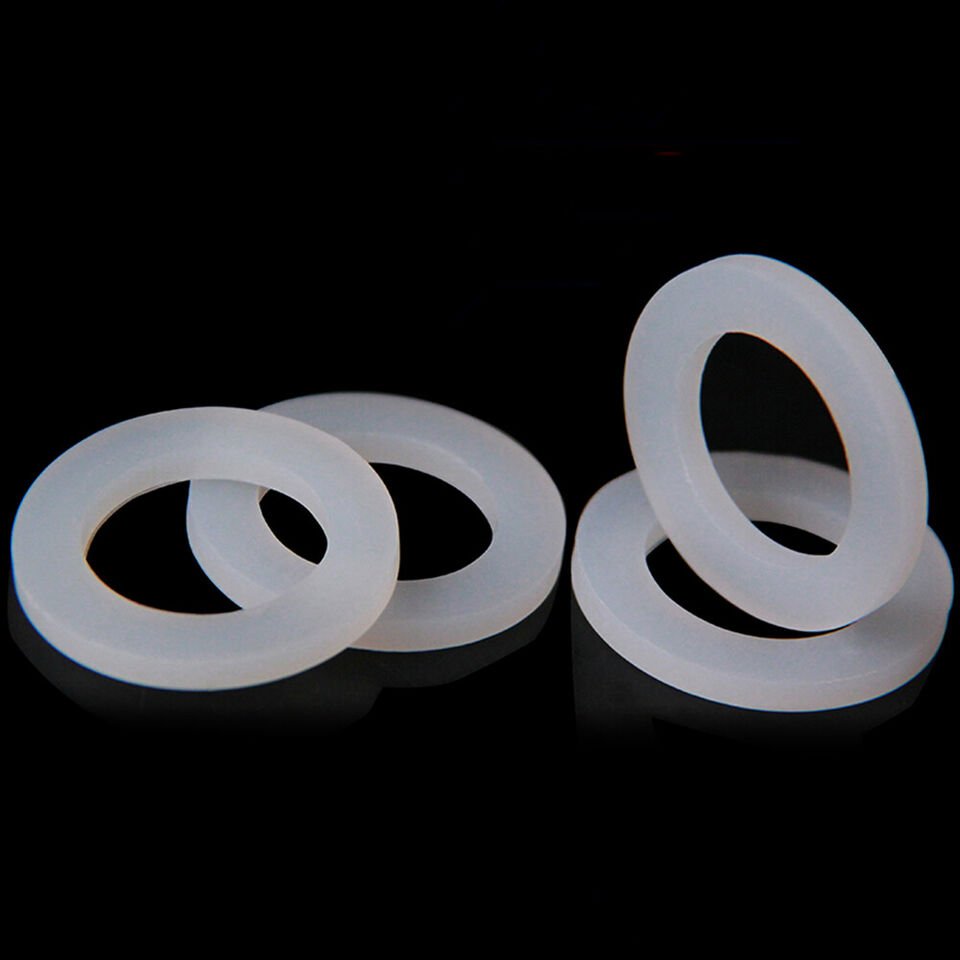
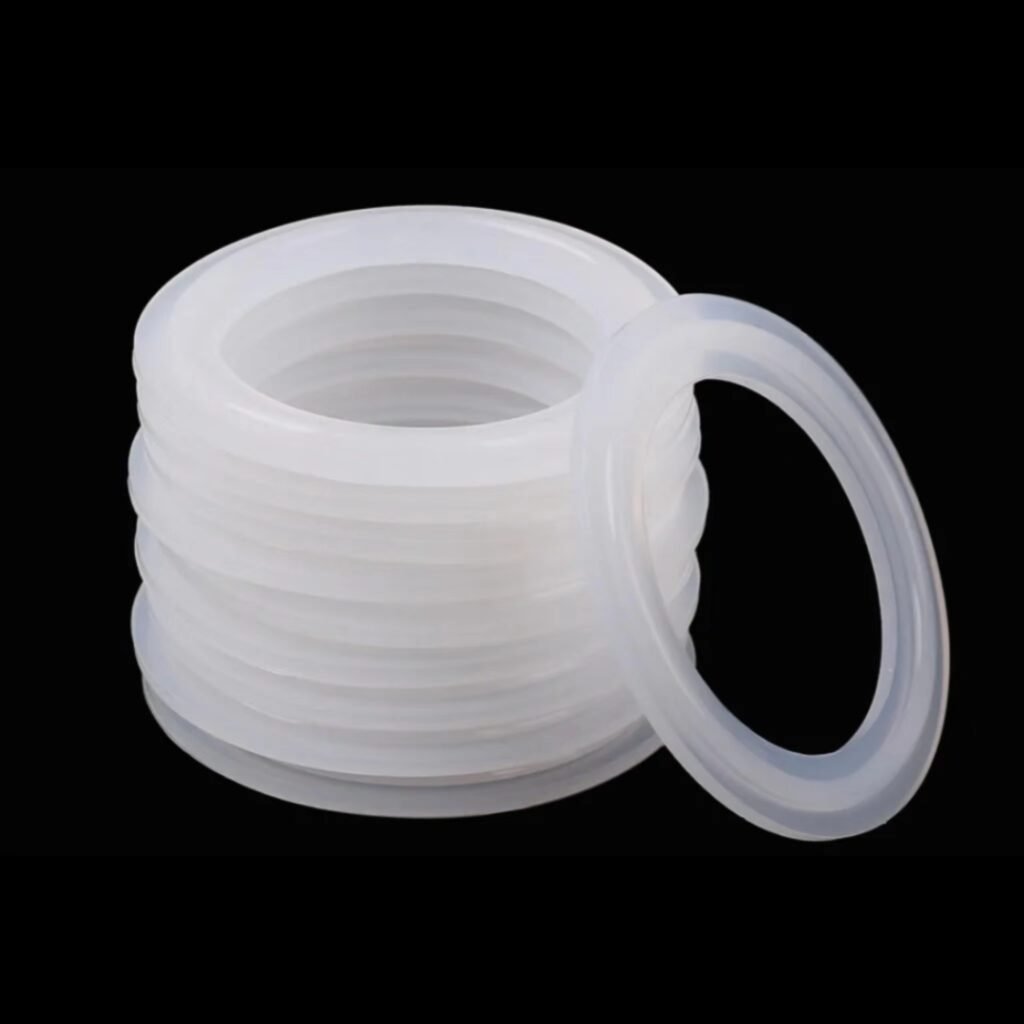
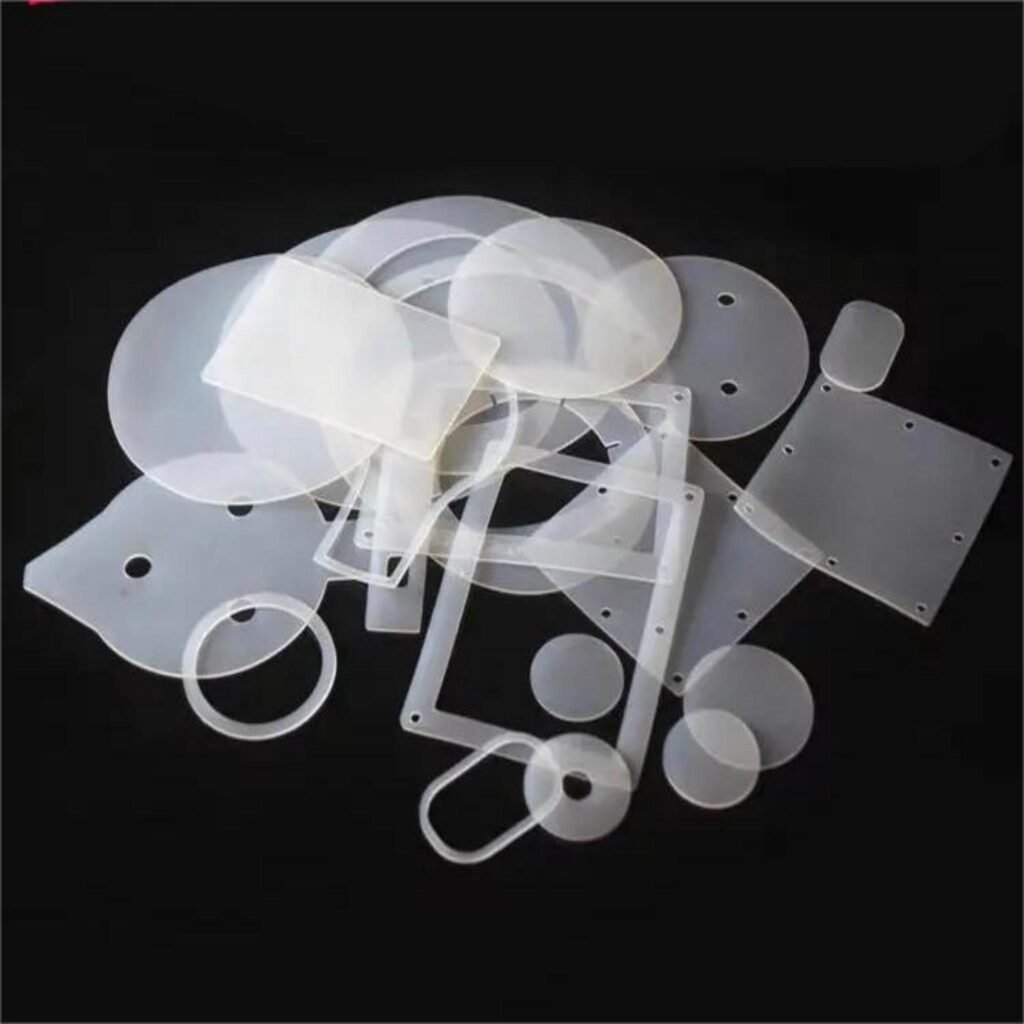
Property:
High temperature and low temperature resistance: the silicone gasket can maintain its elastic and mechanical properties over a wide temperature range.
Aging resistance: Good resistance to ozone, ultraviolet, and weather
Electrical insulation: It has good insulation properties, good corona resistance, and arc resistance
Compression permanent deformation reliability: The silicone gasket has low compression permanent deformation and works well under pressure
Application:
Chemical and industrial equipment: Silicone gaskets are used in chemical equipment, industrial valves, and pipe connections and can withstand some chemicals and high temperature environments.
Electronic and electrical equipment: Silicone gaskets are used in electronic and electrical equipment for dust, water, heat, and electrical insulation. The silicone material’s temperature resistance and electrical insulation properties make it suitable for electronic components, cable connections, and electrical insulation.
Solar energy and energy industry: Silicone gaskets are used to seal and protect solar panels, solar water heaters, and other energy equipment, and can withstand high temperatures and harsh environments.
Automobiles and vehicles: In cars, ships, aircraft, and other vehicles, silicone gaskets are used for the sealing and isolation of engines, exhaust systems, braking systems, and other vital parts.
Food and medical industry: silicone gaskets are often used in food processing, medical equipment, and pharmaceutical fields because the silicone material is non-toxic, tasteless, and high temperature resistant, suitable for contact with food and drugs.
Liquid handling: In the field of liquid handling, silicone gaskets are used in water treatment equipment, pumps, and pipe connections to ensure the sealing and transmission of fluids.
Military and aerospace: Silicone gaskets are used in the military and aerospace fields for sealing, insulation, and vibration absorption of various equipment and components.
Rubber gasket
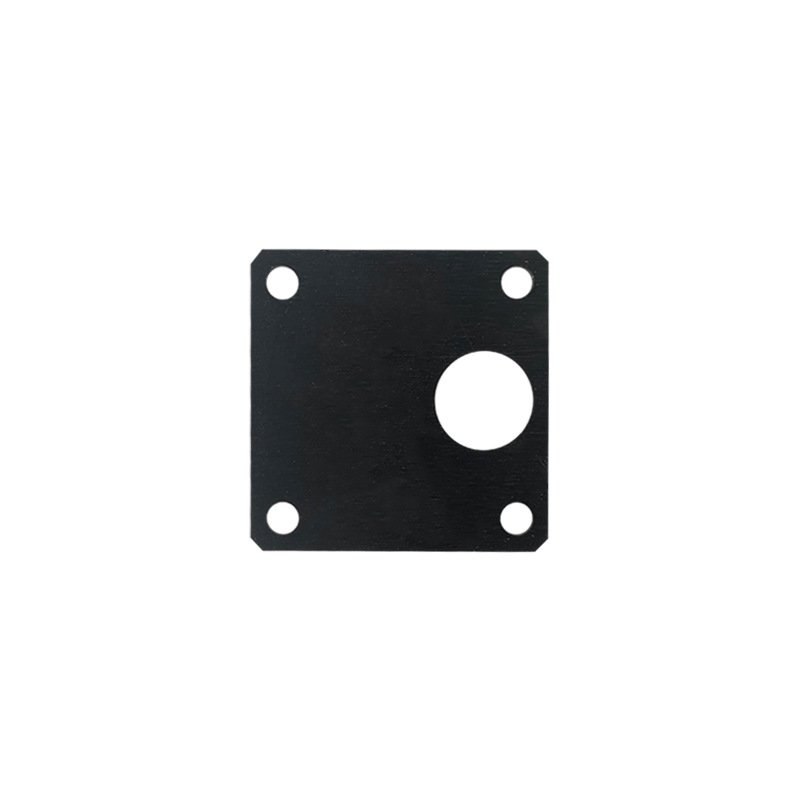
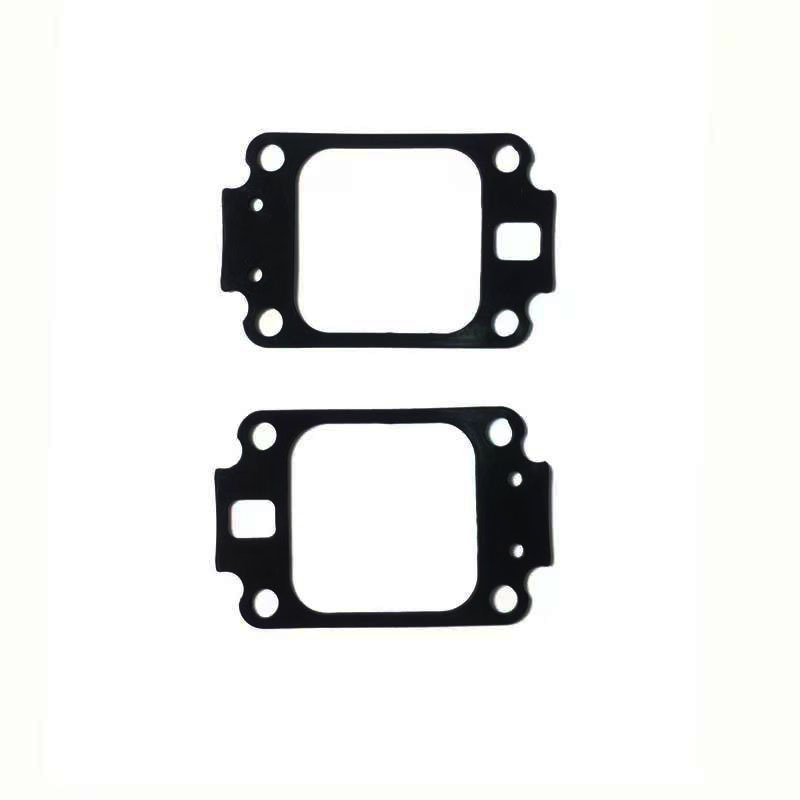
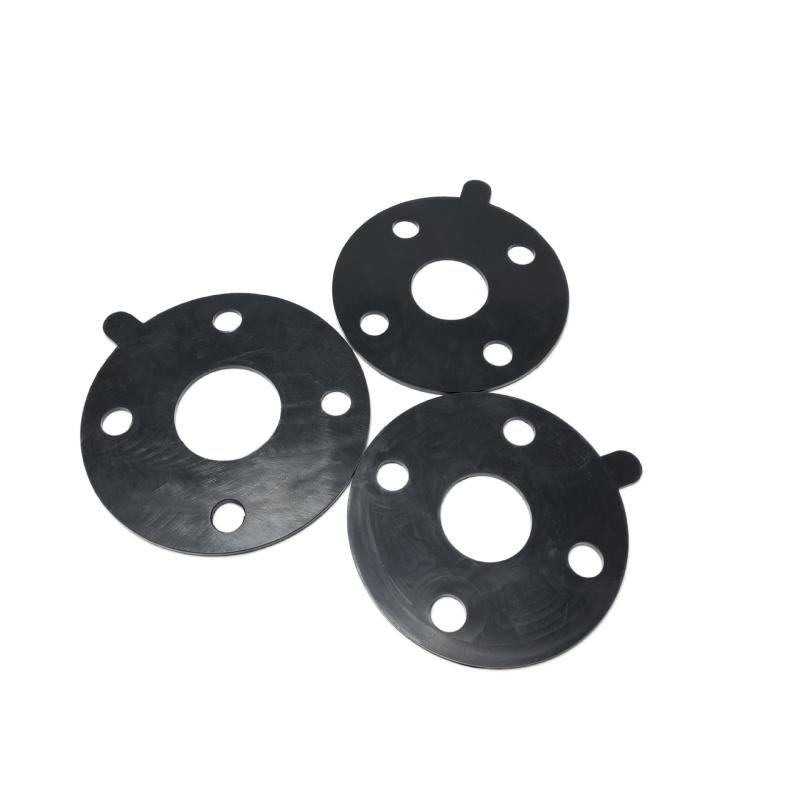
Property
Oil resistance: resistant to lubricating oil and oil
Aging resistance: Ozone and UV resistance
Chemical resistance: acid, alkali, solvent, and fuel resistance
Mechanical properties: Good compression deformation, tear resistance, and wear resistance
Of course, the performance of rubber gaskets depends on the type of rubber and compound additives, such as the gasket made of nitrile rubber has good oil resistance.
Application:
Industrial pipes and valves: Rubber gaskets are commonly used for pipe connections, flange seals, and valve seals to ensure that liquids or gases do not leak in piping systems.
Automotive Industry: In automotive engines and equipment, rubber sealing gaskets are used to seal lubricants, coolants, and other fluids to prevent leaks and contamination.
Chemical and petroleum industry: Rubber gaskets are used to seal containers, pipes, and equipment for various chemicals and petroleum products in the chemical, petroleum, and refining industries
Marine and water treatment: Sealing of Marine equipment, water treatment equipment, and systems, such as sealed hatches, pumps, and piping connections.
Type of rubber gasket
Nitrile rubber
Nitrile rubber is a copolymer of butadiene and acrylonitrile, also known as NBR. It is widely used because of its excellent resistance to various solvents, hydraulic oils, animal and plant oils, and aromatic fuels. Suitable for seals in automotive fuel systems and engines, as well as industrial equipment, the oil and gas industry.
Neoprene
Neoprene is a rubber polymerized from chloroprene, with outstanding flame retardant properties, good oxidation resistance, ozone resistance and oil resistance, and balanced performance. It is suitable for sealing auto parts, industrial equipment, chemical equipment, valves, and pipelines.
EPDM
Ethylene Propylene Diene Monomer, also known as EPDM, is an elastomer made of ethylene and propylene copolymerization. Good mechanical properties, resistant to high and low temperature environments. It has good weather resistance, insulation, and dielectric properties. Similarly, the chemical resistance of EPDM is also good, and it has good resistance to acids, bases, alcohols, ketones, and other solvents. In addition, EPDM is resistant to water and water vapor.
Therefore, EPDM gaskets are suitable for outdoor environments, electronic and electrical industries, and the automotive industry, such as automotive engine systems, water pumps, etc.
Fluoro rubber(FKM)
Fluorine rubber, also known as FKM or Viton, refers to a polymer elastomer containing fluorine atoms on the carbon atom of the main chain or side chain. It is known for its high temperature resistance and excellent chemical resistance. This material is very stable to ultraviolet light, ozone, climate, flame retardant, good insulation performance, and good performance in a vacuum environment. Fluororubber gaskets are mainly used in the chemical industry, aerospace, automotive and vacuum applications. Due to its good oil resistance, it is also widely used in sealing in the oil and gas industry.

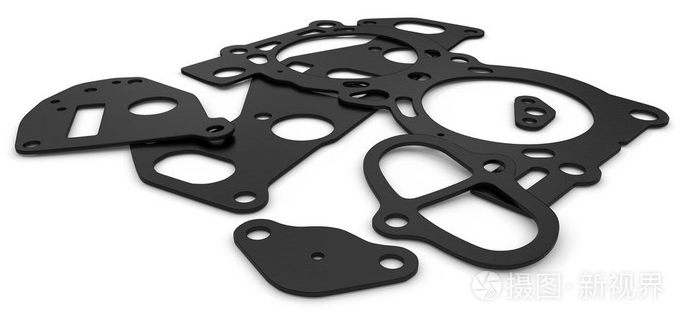
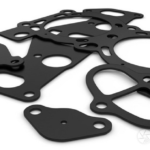

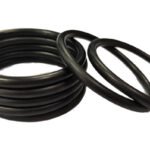

一个回复
So well-produced – I’m always impressed by the quality